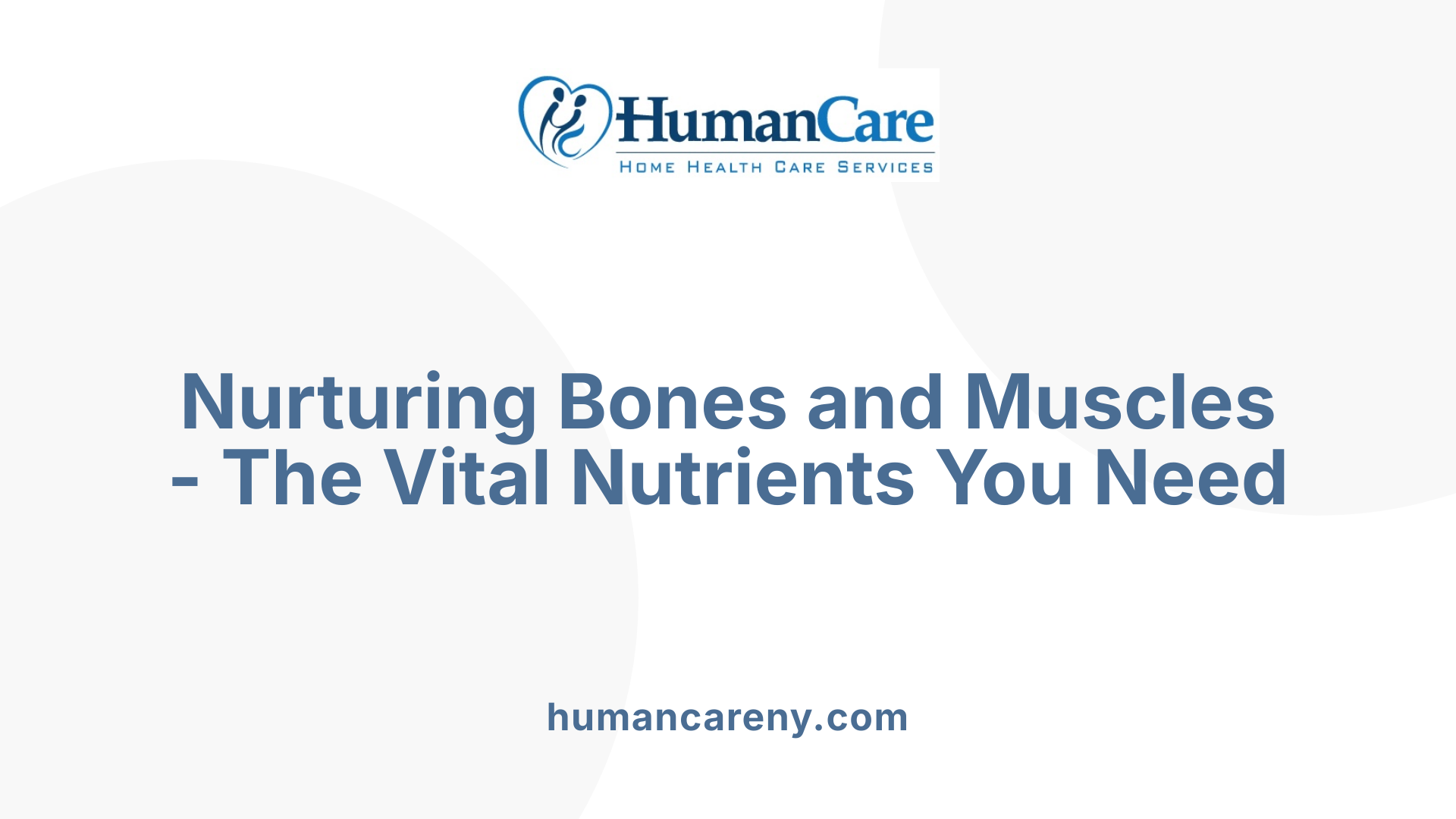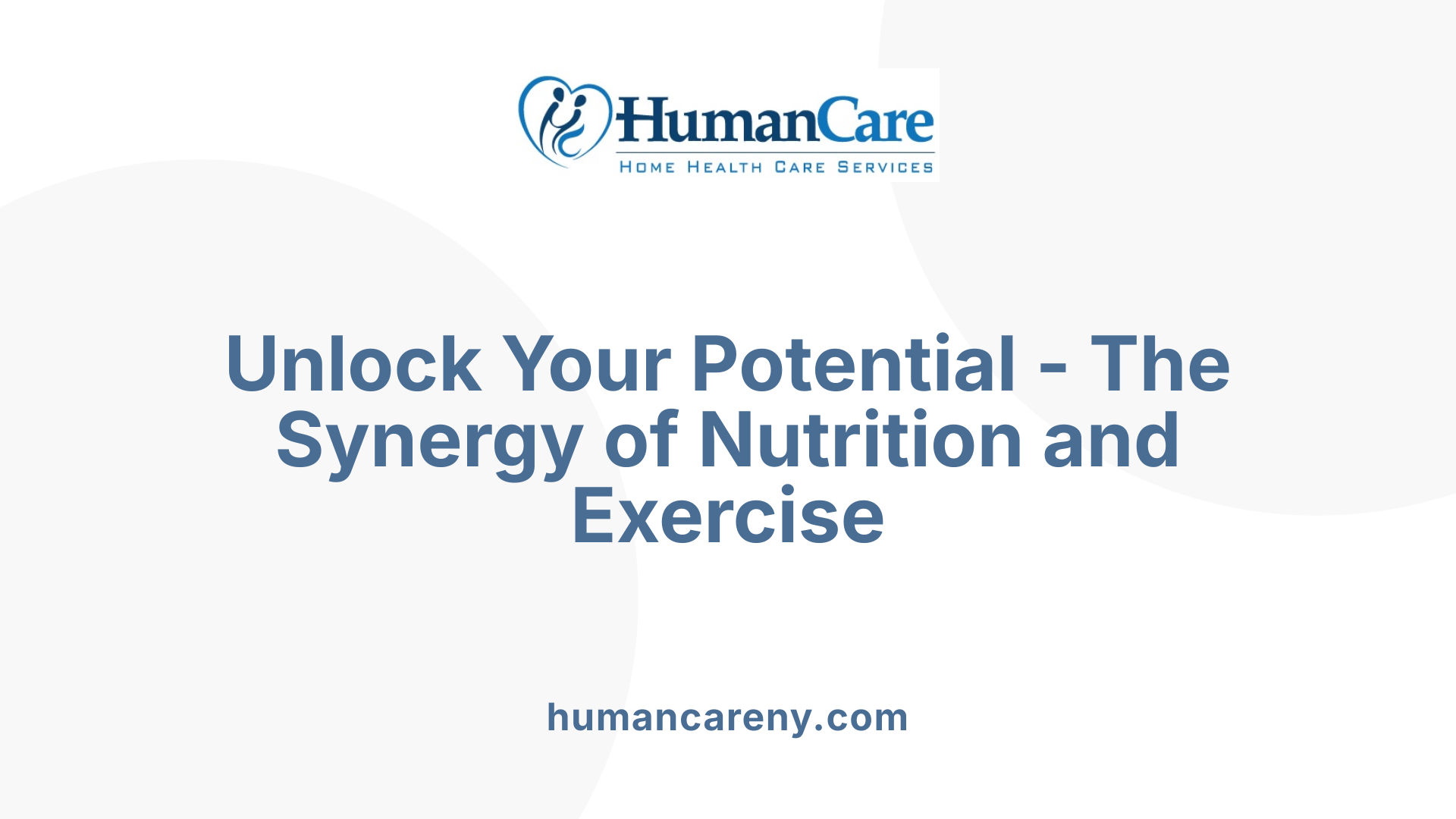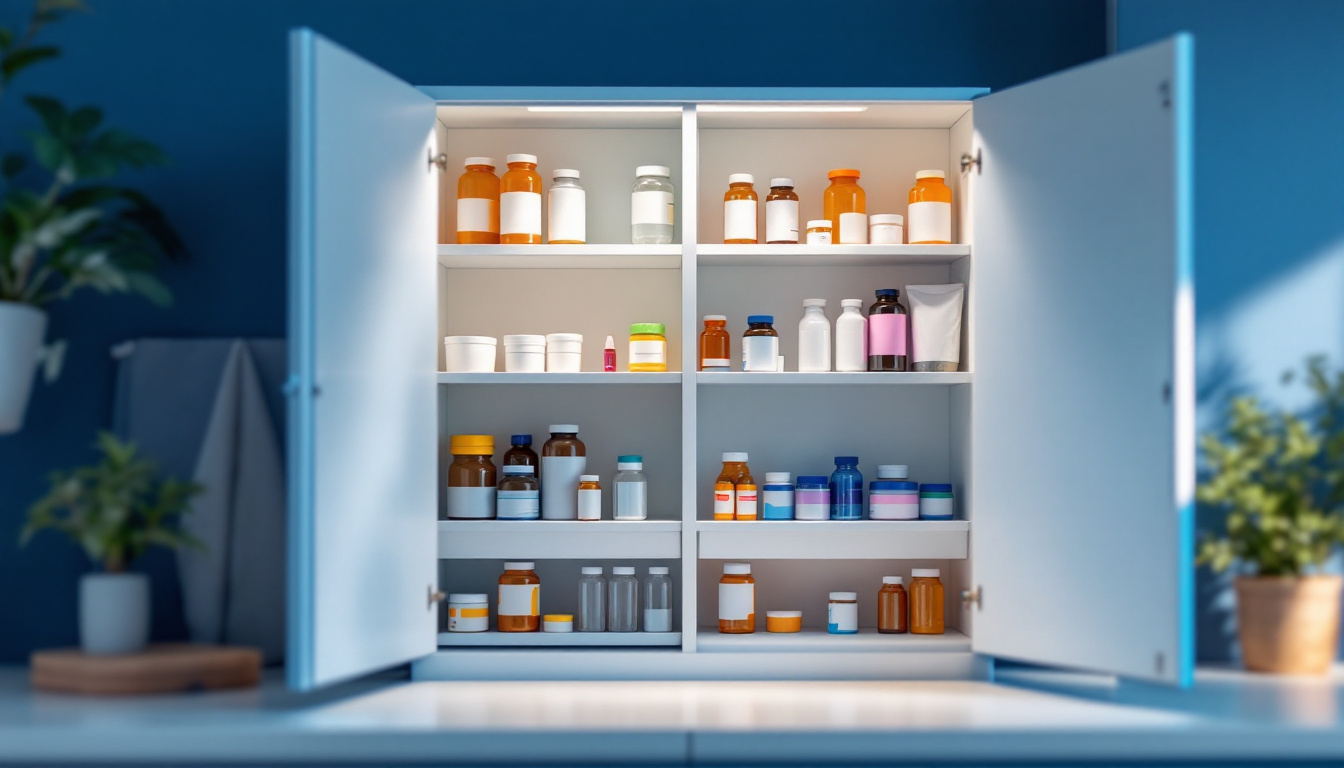Muscle-Strength Foods for Seniors
Boosting Senior Muscle Health Through Nutrition

Introduction
As we age, maintaining muscle mass and strength becomes more challenging but also increasingly crucial for overall health and mobility. The gradual loss of muscle, known as sarcopenia, is a common issue among older adults, affecting nearly half of people over 80. However, diet plays a pivotal role in mitigating this loss, with specific foods offering essential nutrients for muscle growth and maintenance. This article will delve into the best dietary choices seniors can make to enhance muscle strength, support overall well-being, and embrace an active lifestyle.
High-Protein Foods and Their Benefits

The importance of protein for seniors
Protein plays a critical role in the health of seniors, particularly in preserving muscle mass. As we age, starting from around 30 years old, muscle mass and strength naturally decline due to a condition known as sarcopenia. Adequate protein intake can help slow this decline and maintain mobility, balance, and overall quality of life.
Which foods are best for muscle strength in seniors?
Seniors should focus on incorporating protein-rich foods to support muscle strength. Some noteworthy options include:
- Lean Meats: Chicken, turkey, and lean cuts of beef are excellent sources of high-quality protein and essential amino acids necessary for muscle repair and growth.
- Fatty Fish: Salmon and mackerel not only offer protein but also provide omega-3 fatty acids, which promote heart health and support muscle development.
- Dairy Products: Milk, yogurt, and cheese supply protein and calcium, both important for maintaining muscle strength and bone health.
- Plant-Based Options: Beans, lentils, and tofu are fantastic for those on vegetarian diets. These foods provide protein along with beneficial nutrients like fiber, while supporting muscle maintenance.
What is the recommended protein intake for seniors?
To maintain and build muscle, seniors are advised to consume about 1 to 1.6 grams of protein per kilogram of body weight daily. This intake is crucial in combating muscle loss related to aging, especially for those engaged in resistance training. By distributing protein intake evenly across meals, seniors can optimize muscle protein synthesis, aiding in muscle preservation and growth.
| Protein Source | Protein Content (g per serving) | Benefits |
|---|---|---|
| Chicken Breast | 31 | Essential for muscle repair |
| Salmon | 20 | Omega-3s and support for muscle growth |
| Greek Yogurt | 10-20 | High in protein, aids in recovery |
| Tofu | 18 | Plant-based protein, heart-healthy |
| Beans | 15 | Rich in fiber, promotes digestive health |
Essential Nutrients for Muscle and Bone Health

Importance of calcium and vitamin D
Calcium and vitamin D are fundamental for maintaining strong bones, especially in seniors. Calcium is crucial for bone density, while vitamin D enhances calcium absorption. A deficiency in these nutrients can lead to osteoporosis, increasing fracture risks.
Foods high in essential vitamins and minerals
To support muscle and bone strength, a diet rich in various nutrients is key. Here are some food sources to consider:
| Food | Nutrients | Benefits |
|---|---|---|
| Dairy Products | Calcium, Vitamin D, Protein | Strengthens bones and supports muscle health. |
| Fatty Fish | Omega-3 fatty acids, Vitamin D | Reduces inflammation, promotes muscle repair and growth. |
| Lean Meats | Protein, B vitamins | Essential for muscle repair and maintenance. |
| Legumes | Protein, Fiber, Iron | Aids muscle growth and improves digestion. |
| Leafy Greens | Magnesium, Vitamins K, C | Supports bone health and muscle function. |
| Nuts and Seeds | Healthy Fats, Protein, Magnesium | Provides energy and helps in muscle recovery. |
Incorporating these foods regularly, along with participating in weight-bearing exercises, can significantly enhance bone density and muscle strength for seniors.
Dietary Strategies for Seniors' Muscle Gain

What dietary strategies can help women over 60 gain muscle?
To help women over 60 gain muscle, focusing on a high-protein diet is crucial. This diet should incorporate a mix of both animal and plant-based protein sources. Recommended foods include:
- Lean Meats: Chicken and turkey are excellent options.
- Fatty Fish: Salmon and tuna provide not only protein but also omega-3 fatty acids.
- Dairy Products: Greek yogurt and cheese are both rich in protein and calcium.
- Vegetarian Options: Beans, legumes, nuts, and tofu also contribute significantly to protein intake.
Protein distribution across meals
It's important for seniors to distribute their protein intake evenly across meals. Aim for roughly 30 to 40 grams of protein at each main meal. This strategy helps optimize muscle protein synthesis and ensures the body has a constant supply of amino acids for muscle repair and growth.
Combining diet with physical exercise
Incorporating regular resistance training exercises into the routine is key. Seniors should engage in strength training at least two to three times a week, complementing their high-protein diet to enhance muscle strength and mass.
Importance of amino acids like leucine
Special attention should be given to leucine, an essential amino acid vital for stimulating muscle protein synthesis. Seniors should aim for a dosage of around 3 grams of leucine with each main meal to help combat muscle loss.
By combining a balanced, protein-rich diet with resistance training, seniors can effectively build and maintain muscle, ultimately improving their quality of life.
Role of Hydration and Supplemental Strategies
Importance of hydration in muscle function
Hydration plays a crucial role in muscle function, especially for seniors. Muscles are made up of about 75% water, which is vital for optimal performance and recovery during and after physical activities. Staying well-hydrated helps maintain strength, endurance, and coordination, reducing the risk of muscle cramps and injuries during exercise. Seniors should aim for at least 8 cups of water daily, adjusting for activity level, to ensure adequate hydration for physical functions and overall health.
Using protein supplements effectively
For seniors seeking to build muscle, supplements can be an effective way to reach protein goals. Protein powders, such as whey, can help individuals meet their increased dietary protein needs, especially when whole food sources are insufficient. They are easy to incorporate into smoothies, oatmeal, or baked goods.
Creatine is another beneficial supplement, shown to improve strength and enhance lean muscle mass when paired with resistance training. Additionally, incorporating omega-3 fatty acids, vitamin D, and branched-chain amino acids may support muscle maintenance and protein synthesis. As with any supplementation, seniors should consult healthcare providers to ensure safety and proper usage.
| Food Sources | Protein Content (per serving) | Benefits for Muscle Building |
|---|---|---|
| Chicken breast | ~26.7 grams | High-quality protein, low fat |
| Salmon | ~20 grams | Omega-3s support muscle recovery |
| Greek yogurt | ~15-23 grams | Calcium and probiotics for gut health |
| Tofu | ~10 grams | Plant-based protein source |
| Protein powder | Varies | Convenient protein boost |
| Creatine | Varies | Aids muscle recovery and strength |
| Omega-3 supplements | Varies | Supports inflammation reduction |
| HMB (beta-hydroxy-beta-methylbutyrate) | Varies | May help reduce muscle loss |
This combination of hydration, nutrient-rich food sources, and supplements can empower seniors to build and maintain muscle effectively.
Overcoming Challenges to Meet Protein Needs

Decreasing Appetite in Seniors and Protein Intake
As seniors age, they often face a decrease in appetite, which can lead to inadequate protein intake. This decline can hinder their ability to maintain muscle mass, crucial for their strength and overall health. It's essential for older adults to prioritize nutrition, especially protein, to combat the natural muscle loss that occurs with aging.
Options for Easy-to-Consume High-Protein Foods
To help seniors easily consume enough protein, consider incorporating the following nutrient-dense options:
- Eggs: Each egg provides about 6-7 grams of high-quality protein, making them a simple addition to any meal.
- Greek Yogurt: With more protein than regular yogurt, it's an easy snack that can be mixed with fruits or nuts.
- Beans: Versatile and rich in protein, beans can be added to soups, salads, or made into dips.
- Nut Butters: Peanut butter, which contains about 8 grams of protein per serving, can be spread on toast or fruit.
- Protein Powders: For those struggling with solid foods, protein powders mixed into smoothies can effectively increase intake.
Supporting Muscle Building
Seniors can consume a variety of nutrient-dense foods to build muscle effectively. High-quality protein sources such as eggs, dairy products like milk and cheese, and plant-based proteins like tofu and beans are essential for muscle repair and growth. Incorporating healthy fats from nuts and peanut butter can also provide energy and support overall health. Ultimately, maintaining a balanced diet rich in these foods aids seniors in enhancing muscle strength and supporting their well-being.
The Integration of Diet and Exercise

How can elderly individuals quickly regain muscle mass?
Elderly individuals can quickly regain muscle mass through a combination of resistance training and proper nutrition. Engaging in strength training exercises, 2-3 times a week, helps counteract sarcopenia and anabolic resistance, which are common challenges after age 50.
Incorporating effective exercises such as:
- Body-weight exercises (e.g., squats, push-ups)
- Resistance bands training
- Light weights
These methods are excellent alternatives for those who may not favor traditional weightlifting. Furthermore, including cardiovascular workouts supports overall health and enhances endurance.
It's essential to also focus on a high-protein diet that includes sources like lean meats, fatty fish, dairy products, and plant-based proteins to nourish muscle repair.
Consulting with a healthcare provider before initiating any new exercise program, especially for seniors with existing health concerns, ensures safety and enhances effectiveness in achieving muscle-building goals.
Regular hydration is equally important as it supports muscle function and recovery during these activities. The integration of both diet and exercise creates a robust strategy for muscle retention and growth in older adults.
Conclusion
A well-rounded diet rich in high-quality protein and essential nutrients is fundamental for seniors looking to maintain and enhance muscle strength. Coupled with regular resistance training and hydration, these dietary choices can significantly stall age-related muscle decline and improve overall quality of life. As research continues to evolve, seniors are encouraged to stay informed and proactive about their nutrition and exercise habits, ensuring they adapt their diets and routines to their changing physiological needs.
References
- Muscle Building Foods for Senior Citizen - HDFC Ergo
- 10 Foods to Increase Muscle Strength
- Nutrition for Older Adults: Strength, Coordination, Range of Motion ...
- Top 5 Foods & Tips to Help Maintain Muscle Mass in Older Adults
- A Protein-rich Diet Helps Older Adults Preserve Muscle Mass and ...
- Senior Nutrition for Muscle Strength - Human Care
- What Should I Eat To Gain Muscle After 60 | Morada Senior Living




























































































